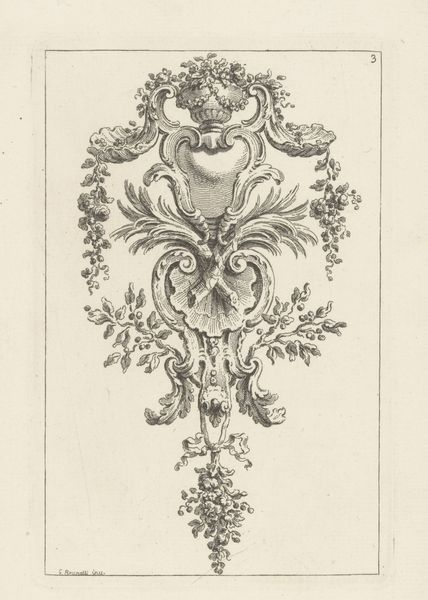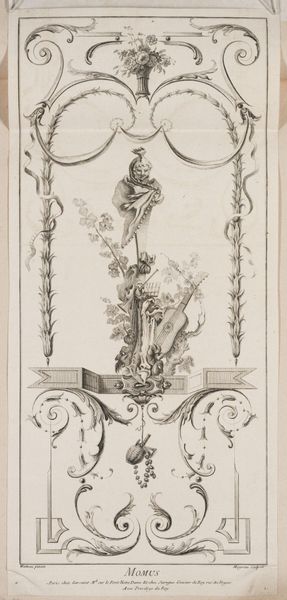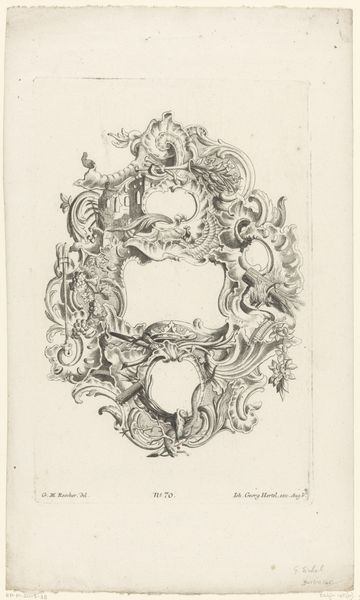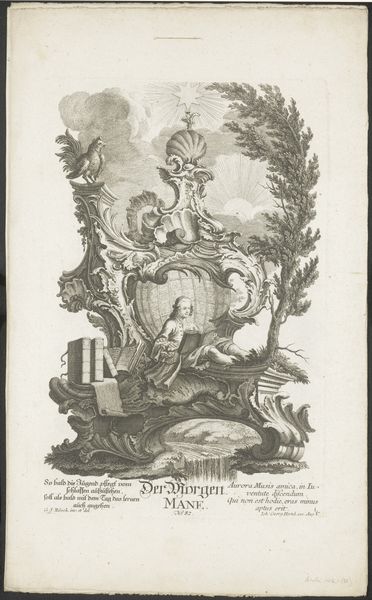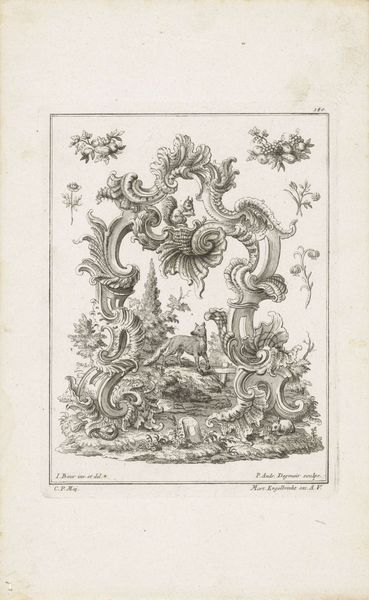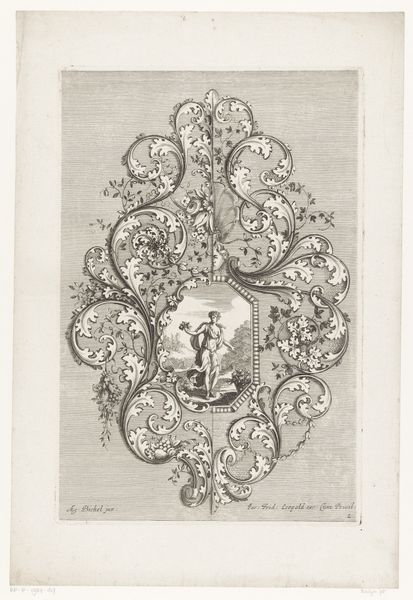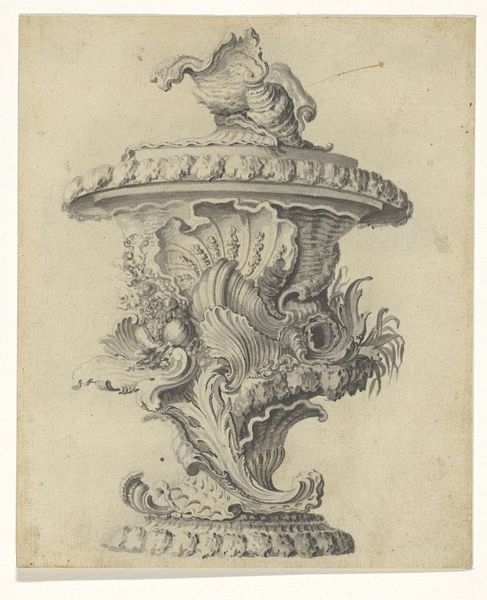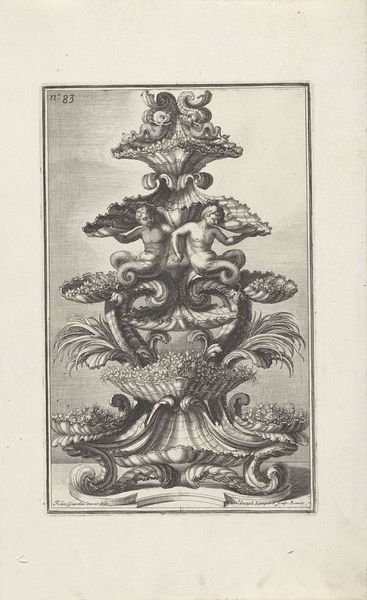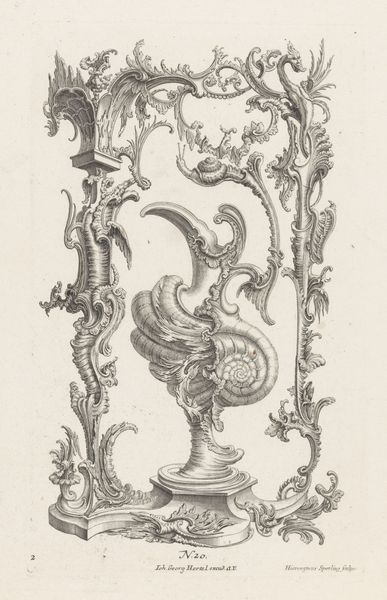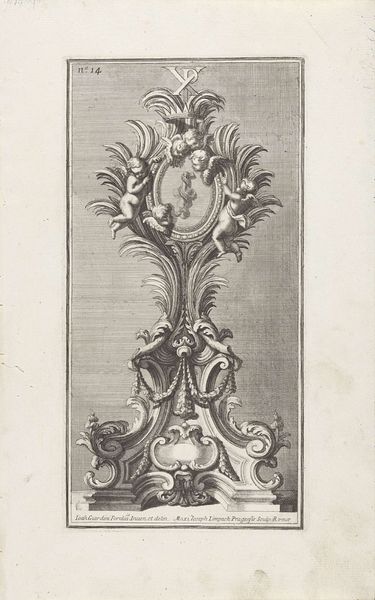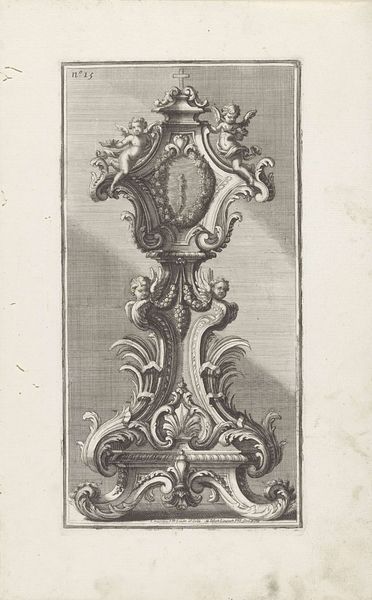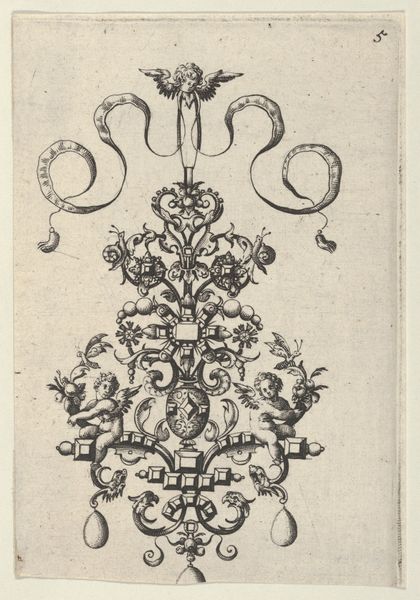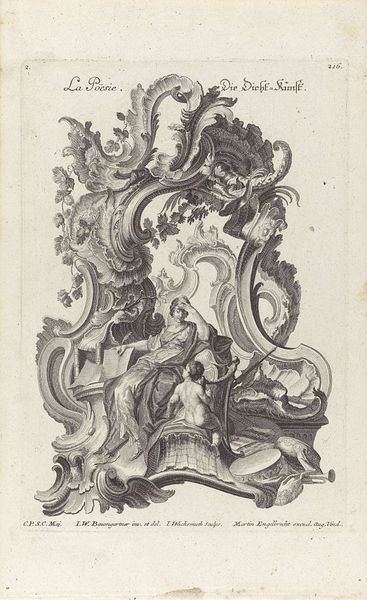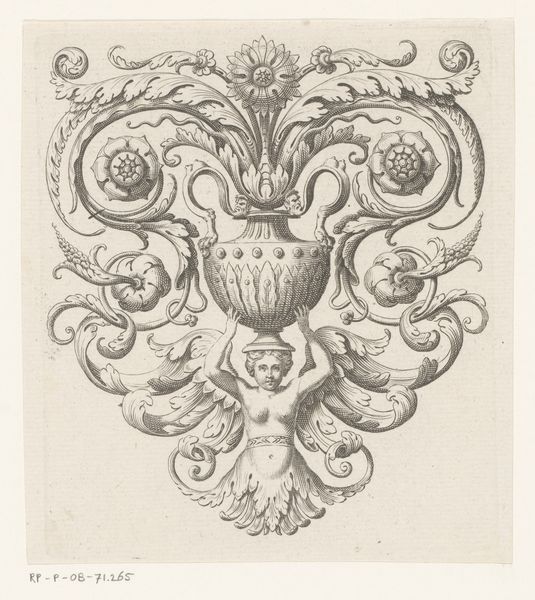
drawing, graphic-art, engraving
#
drawing
#
graphic-art
#
baroque
#
engraving
Dimensions: height 163 mm, width 112 mm
Copyright: Rijks Museum: Open Domain
Quentin Pierre Chedel created this ornamental shell motif engraving in the 18th century. Dominating the composition, we see an elaborate shell motif sprouting organic forms. In ancient Rome, shells were associated with Venus, the goddess of love and beauty, and with the generative powers of nature. This connection to nature carries into the roots and foliage intertwined in the design, suggesting growth, transformation, and the cyclical nature of life. Similar motifs appear throughout art history, from Renaissance paintings to Baroque fountains. Consider Botticelli’s "Birth of Venus," where the goddess emerges from a giant scallop shell. Here, the shell also symbolizes rebirth and the awakening of desire. The subconscious appeal of such symbols is undeniable. The shell, in particular, evokes a primeval connection to the sea, a deep, unknowable realm of the collective unconscious. It speaks to our fascination with the mysteries of creation and the hidden depths of the human psyche. It's a motif that ebbs and flows through the ages, resurfacing in new forms.
Comments
No comments
Be the first to comment and join the conversation on the ultimate creative platform.
